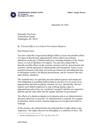Taxpayers on the hook for $400 million per day for partial shutdown
National News

Audio By Carbonatix
2:52 PM on Wednesday, October 1
Brett Rowland
(The Center Square) – Each day the federal government remains closed will cost U.S. taxpayers about $400 million just in salary for about 750,000 furloughed federal workers.
Workers won't collect that backpay until after they return to work when the shutdown ends, upending the lives of federal employees and their families for an uncertain period of time. Congress showed Wednesday that it was no closer to ending the ordeal.
Americans living outside Washington D.C. might not immediately notice that the massive federal government has partially shutdown, but the longer the government stays closed, the more the shutdown could affect people.
"In general, a longer lapse will have larger effects than a shorter one will," the Congressional Budget Office noted in a recent letter to Congress.
The impasse could eventually have a bigger impact on the everyday lives of Americans, but most won't notice the partial shutdown for now.
Federal employees are expected to take the hardest hits because they won't get paid while the shutdown continues. During past shutdowns, some federal workers have taken second jobs while waiting for retroactive pay.
Members of Congress, who failed to adopt a spending plan, will still be paid.
The shutdown could affect the broader U.S. economy.
"The effects of a government shutdown on the economy would depend on its extent and duration," the CBO noted. "The effects of a government shutdown on business activity are uncertain, and their magnitude would depend on the duration of a shutdown and on decisions made by the Administration."
The CBO expects that if a government shutdown lasts for several weeks, "some private-sector entities would never recover all of the income they lost as a result of the suspension of federal activity."
During the 35-day partial government shutdown in 2018-2019 during Trump's first term, CBO reported that the shutdown delayed discretionary spending for compensation and for purchases of goods and services and suspended some federal services. Once the government reopened, most of the payments were made.
At the time, CBO estimated that although most of the real gross domestic product that was lost during the fourth quarter of 2018 and the first quarter of 2019 eventually would be recovered, about $3 billion would never be. In its report, CBO projected that amount at 0.02% of annual GDP in 2019.
Carolyn Bourdeaux, executive director of Concord Action, said the shutdown shows that the congressional budget process is broken.
"Congress is once again mired in a broken budget process with no long-term focus on where our country needs to go," she said in a statement. "In this fiscal environment, budget negotiations should follow certain principles: Congress should do its job, stick to the schedule, seek opportunities for bipartisan compromise, and fully pay for any new spending or tax cuts."
Bourdeaux called the shutdown "embarrassing."
"We need a new approach," she said. "Any budget deal or CR should include establishing a fiscal solutions commission, with real accountability, to break the cycle of fiscal drift and political malpractice."







